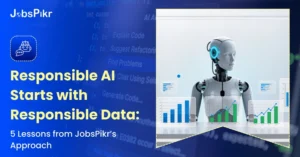- **TL;DR**
- What is Covered Employment?
- Turn Employment Data Into Workforce Insight
- Covered Employment in the United States
- Covered Employment in Canada
- What are the features of Covered Employment?
- Key Characteristics of Covered Employment
- How does Covered Employment work?
- What are the benefits of Covered Employment?
- Who qualifies for Covered Employment?
- Turn Employment Data Into Workforce Insight
- Covered Employment vs Non-Covered Employment
- Covered Employment and Workforce Intelligence
- Turn Employment Data Into Workforce Insight
- FAQs
**TL;DR**
Covered employment refers to jobs that fall under specific labor, social security, or pension regulations defined by government authorities. These roles are legally recognized, protected, and reported, making workers eligible for statutory benefits such as retirement income, disability coverage, survivor benefits, and workplace protections. Understanding covered employment is essential for employers managing compliance, workers evaluating benefits, and organizations analyzing labor market data at scale.
Covered employment refers to a specific category of work that is protected by the United States labor laws. These laws prohibit employers from discriminating against employees or applicants based on certain characteristics, such as race, sex, or age. Covered employment also includes workers who are eligible for overtime pay and other benefits. If you have been denied a job or experienced other forms of discrimination in the workplace, it is important to understand your rights and what steps you can take to protect them.
What is Covered Employment?
Covered employment refers to work that is officially recognized and regulated under applicable labor, tax, or social security laws. When a job qualifies as covered employment, both the employer and the employee are subject to defined legal responsibilities and protections.
In practical terms, covered employment typically means:
- Wages are formally reported to a government authority
- Mandatory contributions (such as social security or pension payments) apply
- The worker is eligible for statutory benefits
- Employment protections under labor laws are enforced
Not all jobs automatically qualify as covered employment. The classification depends on how the role is defined, how compensation is paid, and which laws apply to the employment relationship.
It means that you are employed by an employer who has to pay Canada Pension Plan (CPP) contributions for you. When you have what the Canada Revenue Agency (CRA) considers covered employment, your employers will withhold CPP contributions from your salary or wages and send them directly to the CRA.
You can earn what CRA considers to be pensionable (CPP-covered) employment income even if you are not currently employed because of vacation, illness, or other reasons. However, you may have self-employed, or non-pensionable, employment income. There is a different process for deducting contributions for this type of employment income.
For CPP, what you earn during vacation periods, or while receiving certain types of benefits is considered pensionable employment income. When you are employed by an employer who has to pay CPP contributions, what you earn from this type of employment is combined with what you earn from your employer. Your total earnings are what determine if CPP covers the employment.
Turn Employment Data Into Workforce Insight
Discover how JobsPikr helps teams analyze regulated employment trends and workforce signals using structured job data.
Covered Employment in the United States
In the United States, covered employment is commonly discussed in relation to Social Security coverage and federal labor laws.
Social Security–Covered Employment
From a Social Security perspective, covered employment refers to jobs where wages are subject to Social Security and Medicare taxes. These contributions determine eligibility for retirement income, disability benefits, and survivor benefits.
Most private-sector jobs fall under covered employment, but some categories may be excluded, such as:
- Certain state and local government positions
- Specific nonprofit or religious employment arrangements
- Some roles covered by alternative retirement systems
If wages are not reported as covered employment, they do not count toward Social Security credits, which directly affects long-term benefit eligibility.
Labor Law Coverage
Covered employment also determines whether a worker is protected under federal labor laws related to:
- Anti-discrimination
- Minimum wage and overtime pay
- Workplace safety
- Family and medical leave
In disputes related to hiring, termination, or workplace treatment, covered employment status often determines whether a worker has legal standing under labor regulations.
Covered Employment in Canada
In Canada, covered employment is closely tied to pension systems, particularly the Canada Pension Plan (CPP).
CPP-Covered Employment
Covered employment in the Canadian context refers to employment for which CPP contributions are required. When an individual works in CPP-covered employment:
- The employer deducts CPP contributions from wages
- The employer contributes a matching portion
- Contributions are remitted to the Canada Revenue Agency (CRA)
These contributions build eligibility for CPP retirement, disability, and survivor benefits.
Pensionable Employment Income
CPP-covered employment income includes more than just hours actively worked. Pensionable income may include earnings during:
- Paid vacation
- Sick leave
- Certain employer-paid benefits
- Temporary absences where wages continue
Even when an employee is not actively working, income may still be considered covered employment if it meets CRA requirements.
Non-Pensionable Employment and Self-Employment
Not all income qualifies as covered employment. Self-employed individuals, for example, contribute to CPP differently and are responsible for both employee and employer portions. Some earnings may also be excluded based on the nature of the work or employment arrangement.
What are the features of Covered Employment?
Employment is subject to the laws in the province or territory where it was created. Where you are employed determines what provincial or territorial legislation governs your employment contract.
Federal, provincial, and territorial laws regulate what jobs fall under their jurisdiction as “covered” by labor standards. In Canada, what constitutes covered employment is not the same everywhere. The provincial and territorial laws have different standards for what types of jobs are considered “covered” by labor standards, what matters fall under their jurisdiction, what procedures you can use to enforce your rights under that law, and what penalties you may be subject to.
In Canada, there are limited exemptions from what can be considered covered employment. These exemptions may be found in the labor standards legislation of the province or territory where you live and work. What has covered employment for one type of worker may not be covered for a different kind of worker.

Image Source: https://velocityglobal.com/
Key Characteristics of Covered Employment
While definitions vary by jurisdiction, it typically shares several common features.
Jurisdiction-Based Regulation
Employment is governed by the laws of the country, province, or territory where the job is legally established. This determines:
- Which labor standards apply
- What benefits are mandatory
- How disputes are resolved
In Canada, for example, provincial and territorial labor laws define coverage differently, meaning a role considered it in one region may not be treated the same elsewhere.
Defined Exemptions
Labor laws often include specific exemptions. Certain job types, industries, or worker classifications may be excluded from coverage. These exemptions are usually outlined in legislation and require careful interpretation.
Worker Classification Matters
It depends heavily on how a worker is classified. Employees are typically covered, while independent contractors or freelancers may not be—unless legal tests indicate otherwise. Misclassification is a common compliance risk.
How does Covered Employment work?
Covered employment is what you do after you graduate from high school. It’s what most people do after they finish high school. If you want to, you can work instead of going to college. Work experience during high school makes it easier to find a job later on.
Covered employment can be what you do after high school or what someone does to retire. Nowadays, people are living longer so they have to work longer too. There are many reasons why people choose what kind of job they want to have. Some careers pay more than others or offer better benefits because there is a demand for these workers. Some people work because they enjoy what they do and what they offer or what service that company provides to others.
Many people also work to raise their families and provide better lives than what they might have at home. There are many ways to find out what career would be best for you. Some people pick what they will do by what interests them, what skills they have or what kind of environment would suit them best.
What are the benefits of Covered Employment?
One benefit of covered employment is that it allows the spouse and children of an insured worker to receive survivors’ or dependents’ benefits. Another benefit is that a claimant may be able to receive disability benefits, as long as the medical condition meets the medical description for eligibility. Also, benefits to survivors and dependents include monthly cash benefits payable to a widow or widower age 50 or older, children, disabled adult children, and dependent parents who are not eligible for retirement benefits.
Benefits may also be available to ex-spouses under certain circumstances. Monthly cash benefits also may be payable to a divorced spouse who is the insured’s former spouse and who meets all requirements for benefits.
Who qualifies for Covered Employment?
Now, let’s focus on what qualifies as covered employment under U.S. immigration law and what types of employers are eligible for H1B visas (non-immigrant work visas).
A foreign national individual may apply for an H1B non-immigrant visa if he or she is coming to the United States temporarily to work in a “specialty occupation” or an occupation that requires “theoretical and practical application of a body of highly specialized knowledge.” The H1B visa is intended for persons working in what are deemed to be specialty occupations.
To qualify as a specialty occupation, the job must meet each of the criteria: The position must be one that requires theoretical and practical application of a body of highly specialized knowledge. This knowledge must be customarily acquired by completing a specific course or series of courses at an accredited college or university.
Theoretical and practical application of the body of specialized knowledge must be demonstrated by attaining a bachelor’s or higher degree (or its equivalent) in the specialty, or its equivalent. The employer normally requires a degree or its equivalent for the position.
Turn Employment Data Into Workforce Insight
Discover how JobsPikr helps teams analyze regulated employment trends and workforce signals using structured job data.
Covered Employment vs Non-Covered Employment
| Aspect | Covered Employment | Non-Covered Employment |
|---|---|---|
| Legal recognition | Formally recognized under labor, tax, or social security laws | May fall outside standard labor or social security frameworks |
| Wage reporting | Wages are officially reported to government authorities | Wages may not be fully or consistently reported |
| Statutory contributions | Mandatory contributions apply (e.g., social security, pension, payroll taxes) | Contributions may be optional, partial, or not required |
| Eligibility for benefits | Eligible for government-backed benefits such as retirement, disability, and survivor benefits | Typically not eligible for statutory benefits tied to employment |
| Labor law protections | Protected under employment standards such as minimum wage, overtime, and anti-discrimination laws | Limited or no protection under standard labor laws |
| Worker classification | Usually applies to formally employed workers | Commonly includes independent contractors, freelancers, or informal workers |
| Employer obligations | Employers must comply with reporting, contribution, and labor regulations | Fewer or different employer obligations, depending on jurisdiction |
| Risk of misclassification | Lower when roles are clearly defined and regulated | Higher, especially when work resembles employee roles without formal coverage |
| Use in workforce analytics | Provides a reliable signal of formal labor market activity | Often excluded from official labor market and employment statistics |
| Examples | Full-time employees, part-time employees, regulated contract roles | Gig work, informal work, certain self-employment arrangements |
Covered Employment and Workforce Intelligence
Covered employment is more than a legal classification—it is one of the most reliable signals of formal workforce activity. When organizations, analysts, and policymakers talk about workforce intelligence, they are ultimately trying to answer one question: where is stable, regulated work actually happening? Covered employment provides that answer.
Because covered employment includes roles that are officially reported, regulated, and tied to statutory obligations, it offers a clearer and more consistent view of labor market dynamics than informal or unreported work. This makes it a foundational input for workforce intelligence models.
Why This Data Is More Actionable
Unlike informal or loosely defined work arrangements, covered employment data is anchored in compliance. Employers are required to report these roles, contribute to benefit systems, and adhere to labor standards. As a result, covered employment reflects jobs that are:
- Structurally embedded in the economy
- Less volatile than informal work
- Comparable across industries and regions
For workforce intelligence teams, this means covered employment data is better suited for trend analysis, benchmarking, and long-term planning.
Understanding True Labor Demand
Job postings associated with covered employment often signal genuine, budget-backed hiring intent. These roles typically involve defined job structures, salary bands, benefit obligations, and long-term workforce planning.
By analyzing covered employment signals, organizations can:
- Identify which industries are adding regulated roles versus relying on contingent labor
- Distinguish short-term hiring spikes from sustained workforce growth
- Track how demand shifts across geographies and skill categories
This distinction is critical when forecasting talent shortages or evaluating the stability of specific job markets.
Workforce Participation and Economic Stability
Covered employment also serves as a proxy for workforce participation in the formal economy. Changes in covered employment levels can indicate:
- Expansion or contraction of regulated industries
- Shifts in employer confidence
- Changes in compliance or labor policy enforcement
For governments and large enterprises, these signals help assess economic resilience and workforce health beyond headline employment numbers.
Role of Covered Employment in Skills and Talent Intelligence
From a skills perspective, covered employment data enables more accurate mapping of:
- In-demand skills tied to long-term roles
- Career pathways within regulated industries
- Skill standardization across job titles and regions
Because these roles are more consistently structured, they reduce noise caused by vague titles, inflated requirements, or informal job descriptions. This improves the quality of skills intelligence derived from job data.
Compliance, Risk, and Workforce Planning
Workforce intelligence is not only about growth—it is also about risk. This data helps organizations monitor:
- Worker classification trends
- Shifts from covered to non-covered roles
- Potential exposure to misclassification or compliance issues
For multinational or multi-region employers, this visibility is essential to ensure workforce strategies align with local labor laws.
How Job Data Powers Covered Employment Insights
While it is defined by regulation, it becomes actionable through data. Large-scale job posting data helps organizations observe how covered employment manifests in the market—by role, industry, location, and skill set.
By structuring and normalizing job data, platforms like JobsPikr enable teams to:
- Track trends across thousands of employers
- Compare regulated hiring patterns across regions
- Connect employment classifications with skills demand and workforce supply
This transforms covered employment from a static legal concept into a dynamic workforce intelligence signal.
The information in this blog post should help you understand what covered employment is and how it pertains to your business. We hope that the insights we’ve provided will be helpful for making decisions about hiring practices, policies, and procedures. Feel free to contact us with any questions or concerns we are always happy to talk!
Turn Employment Data Into Workforce Insight
Discover how JobsPikr helps teams analyze regulated employment trends and workforce signals using structured job data.
FAQs
What does covered employment mean?
Covered employment refers to jobs that are officially recognized under labor, tax, or social security laws, making workers eligible for statutory benefits and protections.
Is covered employment the same in every country?
No. Covered employment definitions vary by country and jurisdiction, depending on local labor laws, pension systems, and social security regulations.
Are self-employed workers considered covered employment?
Self-employed individuals are often treated differently. In some systems, they may contribute to pension or social security programs but are not classified as covered employment in the same way as employees.
Why is covered employment important for benefits?
Only covered employment typically counts toward eligibility for retirement income, disability benefits, and survivor benefits under government programs.
How does covered employment affect employers?
Employers must correctly classify covered employment to meet reporting, contribution, and labor law obligations. Misclassification can lead to legal and financial penalties.




